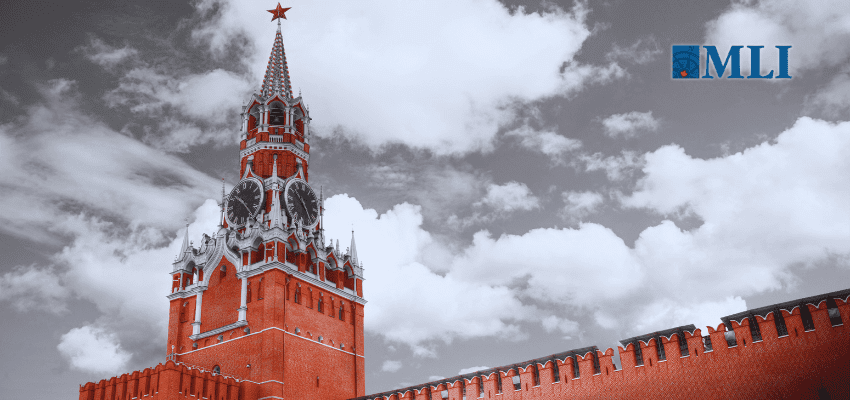This article originally appeared in the National Post.
By Marcus Kolga, Sepember 12, 2024
The recent U.S. indictment of two Russian state media operatives for funding a $10-million disinformation and influence operation targeting Canada and the United States, involving Canadian actors, exposes Canada’s glaring vulnerability to Russia’s insidious and sophisticated interference campaigns.
However, this indictment is merely the tip of a much larger iceberg, revealing only a fraction of Russia’s relentless information and influence operations that exploit our freedoms in its attempt to erode our democratic institutions from within.
Canada’s national discourse on foreign interference has been narrowly fixated on election meddling, yet the U.S. indictment demonstrates that authoritarian regimes are not simply waiting for election seasons to undermine our democracies. The threat is continuous, a toxic fusion of information warfare and covert influence that seeks to manipulate public opinion and policy to Russian President Vladimir Putin’s advantage, relentlessly tearing at the cohesion of our society.
While Chinese government influence operations have rightfully drawn significant attention in Canada, Russia’s equally corrosive campaigns have been largely ignored, leading to the dangerous and naive assumption that we’ve somehow escaped Putin’s grasp. Russia’s operations are not only active within our borders but are an integral part of its broader assault on western democracies. Our collective ignorance of this threat is not just a failure of foresight; it is a failure of our responsibility to safeguard our democratic institutions.
Russian malign influence operations in Canada are nothing new. As early as the 1940s, Soviet defector Igor Gouzenko exposed an extensive espionage network embedded within Canada, sounding the first alarms about Russian information and influence operations here. Today, little has changed. Despite incessant red flags over the past decade, we continue to turn a blind eye as Russia’s influence operations grow ever more expansive and sophisticated.
Like Beijing, the Kremlin’s influence extends beyond simple espionage into academic institutions, media, and policy circles. In 2023, the Globe and Mail reported that U.S. prosecutors alleged that a Russia-based outreach organization, PICREADI, which had cultivated relationships with rising North American and European policy professionals and academics, was being funded by and taking direction from the FSB, the successor to the KGB.
This influence is part of a broader strategy involving think tanks like the Valdai Club and the Russian International Affairs Council, which launder Kremlin-approved narratives cloaked in a veneer of intellectual legitimacy provided by unwitting or complicit western scholars.
It’s not just Russia’s sprawling intelligence services that are identifying and exploiting western assets and vulnerabilities. The tentacles of oligarchs and agents have also penetrated deep into Canadian business, politics, and society.
One of Putin’s closest associates, former KGB colleague Vladimir Yakunin, was notably shielded from Canadian sanctions for the Russian invasion of Ukraine, reportedly due to lobbying efforts by Bombardier, a company with long-standing and extensive business ties to Russia. This winter, Bombardier benefited from a rare sanctions exemption that allows it and Airbus to continue purchasing titanium from the same Russian company that produces parts for the missiles and bombs raining down on Ukrainian civilians.
Roman Abramovich, Russia’s wealthiest oligarch and the person who played a key role in recommending Putin as a successor to Boris Yeltsin, holds billions in Canadian assets through Evraz steel. Through Evraz, despite sanctions imposed on him in 2022, Abramovich impacts thousands of Canadians, their jobs, and significant parts of Canada’s economy.
Others, like Igor Makarov, an ex-owner of Alberta’s Spartan Delta, have desperately attempted to escape sanctions — but without success.
Yet, one of the most egregious cases of Canadian complicity involves Vitaly Malkin, a close associate of Putin and a Russian senator exposed by activist Alexei Navalny. Malkin owned millions of dollars in Toronto real estate but was banned from entry into Canada for alleged involvement in organized crime. Despite this ban, Malkin met with Canadian officials in 2013 under an assumed name shortly after leading the Russian campaign to lobby the U.S. government against adopting Magnitsky human rights legislation.
The 2022 revelation that Colonel Mikhail Mikushin of Russia’s GRU posed as Brazilian academic José Assis Giammaria, who studied at Carleton University and the University of Calgary and even volunteered on the campaign of an NDP candidate, was largely shrugged off by Canadian media and authorities.
The GRU is responsible for multiple recent assassinations and acts of sabotage.
Mikushin lived in Canada and conducted his operations undisturbed for nearly two decades. Yet his importance to Putin and his foreign influence operations was made clear in August 2024, when Mikushin was among the handful of murderers, hackers, and other Russian intelligence agents, who were returned to Russia by the U.S., Germany, and Norway in return for journalists and activists.
Canadians cannot continue to ignore the threat of Russian information and influence operations. These aren’t merely games of political intrigue; they are deliberate acts that are designed to advance the Kremlin’s interests and destabilize and discredit our democracy, as the recent U.S. indictment outlines.
It is time that we acknowledge the scale of this threat and take decisive action before we find our democratic foundations irreparably eroded by a hostile regime that preys on our naive complacency.
Marcus Kolga is a senior fellow at the Macdonald-Laurier Institute and director of DisinfoWatch






